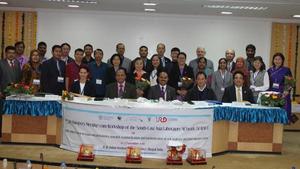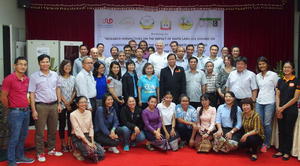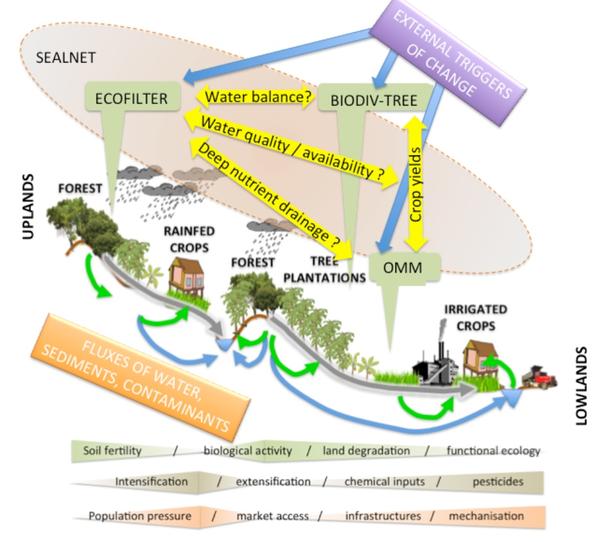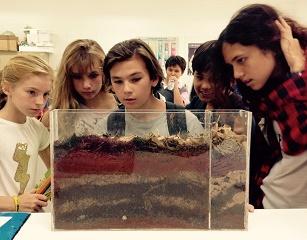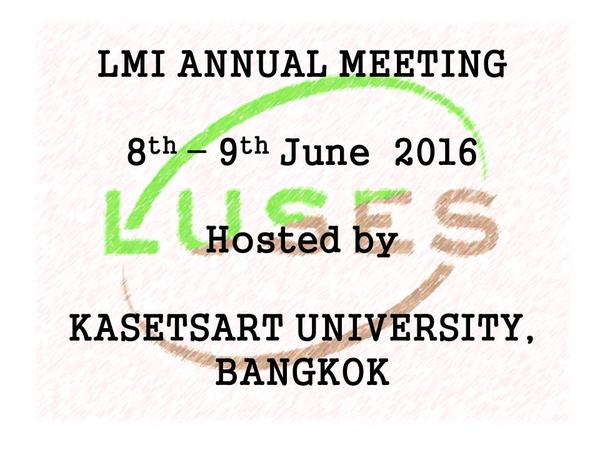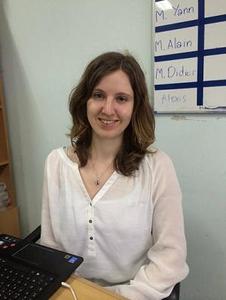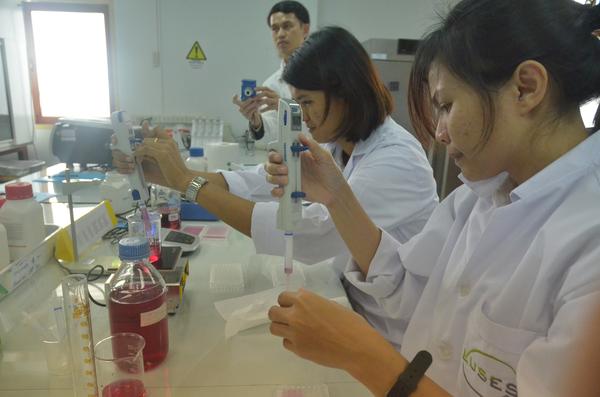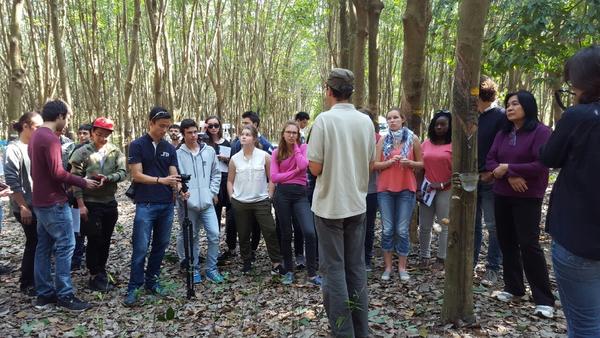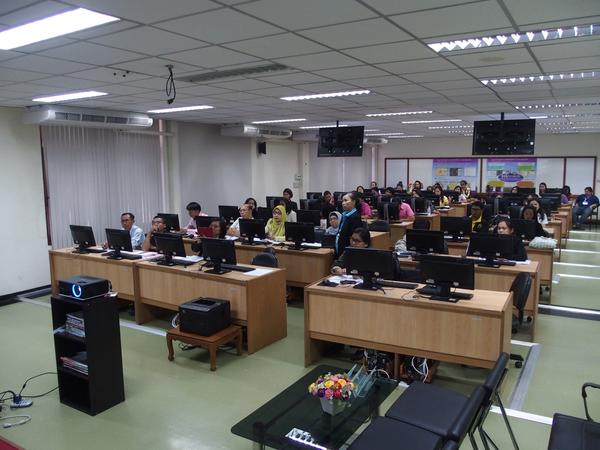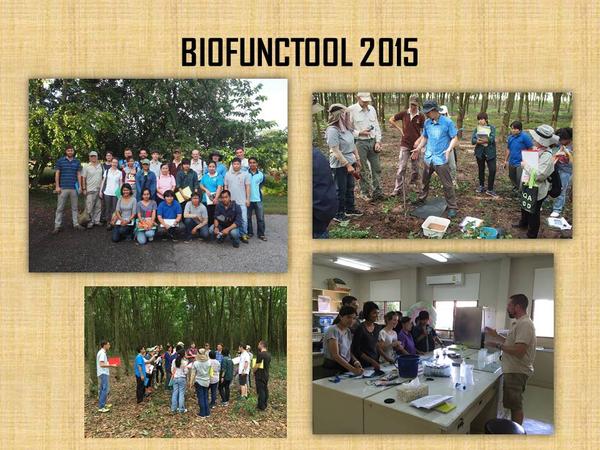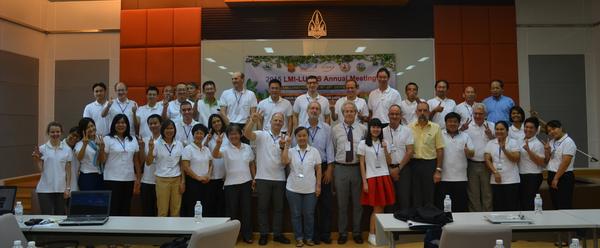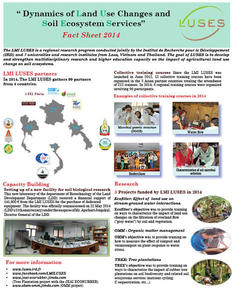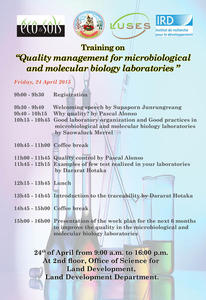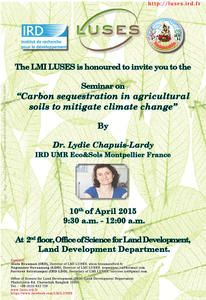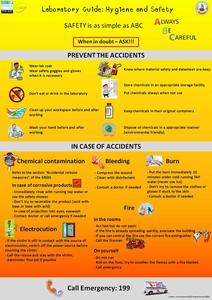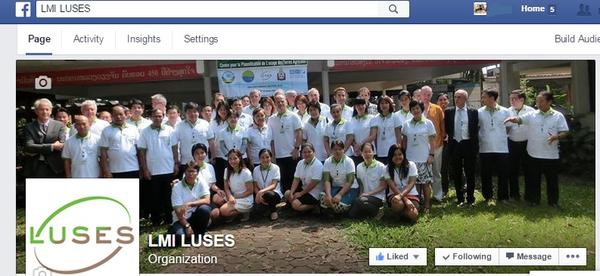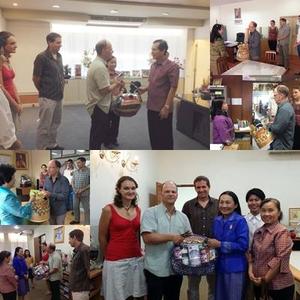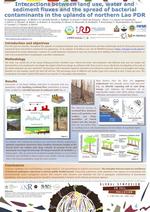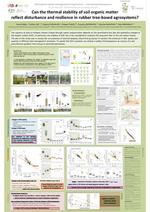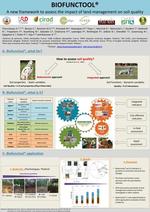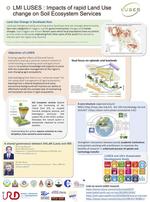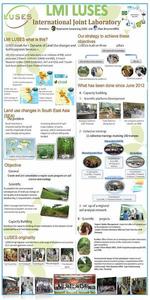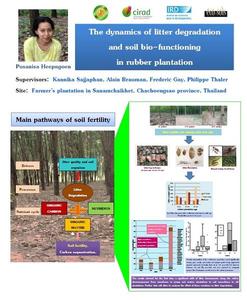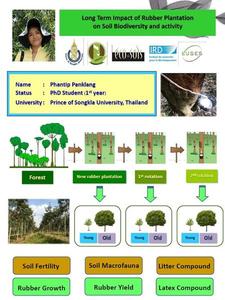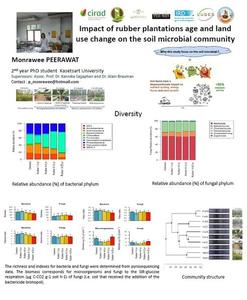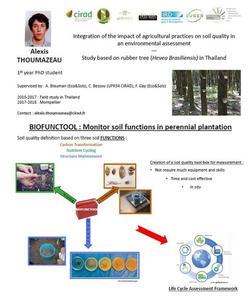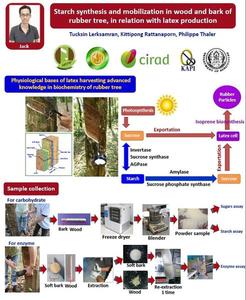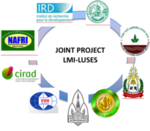Edito
Recent News
Presentation of LUSES work on Heavy Metal Pollution and Ecological Risk Assessment of Soils and Sediments at 3rd Asia Conference on Environment and Sustainable Development
Dr Huong Mai, from University of Science and Technology of Hanoi, Vietnam, presented the results of her work on Heavy Metal Pollution and Ecological Risk Assessment of Soils and Sediments in Dong Cao Catchment, Vietnam at the 2018 3rd Asia Conference on Environment and Sustainable Development, November 2-4, 2018 | Singapore
The 2nd meeting of South-East Asia Laboratory NETwork (SEALNET) was organized on 19 - 23 November 2018 in ICAR-IISS, Bhopal, India.
The second lab managers’ meeting of the South-East Asia Laboratory NETwork (SEALNET) focused on standardization and harmonization of soil analyses and their interpretation to improve quality of service in Asian soil laboratories.
LUSES members from IRD, CIRAD, LDD and KKU coordinated a Biofunctool® training workshop from 19 to 24 November 2018 within the framework of PISAI
This Biofunctool training was organized within in the framework of P articipatory and I ntegrative S upport for A gricultural I nitiative program PISAI was held from 19/11/2018 to 24/11/2018 at Khon Kaen University in Thailand, and organised by two Agrinatura (CIRAD and from IRD ECO&SOLS) experts: Dr Alain Brauman and Dr Alexis Thoumazeau with assistance of LDD staff Mrs Phantip Panklang and Mrs Porntip Puttasso.
A joint LMI LUSES - JEAI EcoRubber - STOCK CANSEA regional workshop was held in Vientiane from 12 to 14 September 2018
The regional workshop entitled: “Research perspectives on the impact of rapid land use change on ecosystem services in the context of climate change and economic transformation of the lower Mekong basin”, held at the Lao-Japan Institute, National University of Laos, Dong Dok campus, Vientiane, Laos, gathered fifty Lao, Vietnamese, Thai and French researchers who shared and discussed recent research results on the impacts of rapid land use change on soil ecosystem services, water quality and impacts on human health.
On the occasion of this workshop, Dr Cornelia Rumpel, researcher with the French National Research Center (CNRS) at the Institute of Ecology and Environmental Sciences Paris ( iEES-Paris) and Chair member of the Scientific and Technical Committee of the 4 per 1000 initiative "Soils for Food Security and Climate" delivered a special lecture on the management of soil organic matter as a way to increase soil ecosystem services while Dr Naoise Nunan , also researcher with CNRS at iEES-Paris gave an enlightening talk about the role of microorganisms in soil organic matter dynamics.
Overall, the workshop outlined the importance of research collaboration between Southeast Asian and French in the field of agro-ecology as it has significant potential to increase both the efficiency and productivity of agriculture, while contributing to abate negative impacts of Climate Change.
Link to the June 2017-June 2018 activity report
The current LUSES project corresponds to the consolidation of an initial 5-year phase (from June 2012 to June 2016) that has been jointly coordinated by Mrs Nopmanee Suvannang (then director of the Soil Analysis Technical Section, Office of Science for Land Development, Land Development Department (LDD), Bangkok, Thailand) and Dr Alain Brauman (Eco&Sols), research scientist with the Institut de Recherche pour le Développement (IRD) then posted at LDD.
This initial 5-years phase demonstrated successful regional collaboration across three Southeast Asian countries, namely Laos, Thailand and Vietnam, resulting in synergies in approaches, particularly through the establishment of the SEALNET quality assurance network for soil analyses (which has captured the interest of ASPAC, FAO) and enhanced local research capacity (including 9 PhD that will now be completed within months). The first phase of LUSES also demonstrated the interest of drawing upon long-term observatories of the environment, such as the MSEC/M-Tropics Critical Zone observatory to further strengthening the relevance of impact assessment of land use changes.
With the start of the second phase of LUSES, efforts have been deployed to launch new initiatives such as the SoilBag activity which established a link between OMM and ECOFILTER and which, through the replication of a single field experimental at sites chosen to conduct other LUSES activities, also potentially represents a means for LUSES participants to develop more common research interests.
While the first phase of LUSES strongly focused on rubber tree plantation agrosystems, LUSES has now expanded to new agroecosystems such as coffee plantations, in particular with the work conducted by new LUSES partners from the Faculty of Agriculture of Chiang Mai University (CMU). Through the continued collaboration between LUSES and M-Tropics (previously known as MSEC), new research on heavy metal concentration in soil and water invertebrate has also been initiated with a new vietnamese partner institution, the University of Science and Technology of Hanoi.
SEALNET has continued to develop and was officially extended to Asian Soil Partnership member countries of the FAO (ASP-FAO) which has led to the election of Mrs Nopmanee Suvannang, co-PI of SEALNET, as Chair of the FAO's Global Soil Laboratory Network (GLOSOLAN).
Financially, LUSES has maintained a level of co-funding of roughly 80% over the years 2016 and 2017, which is undoubtedly the sign of a now well-established and appreciated scientific stature.
The second phase of the LUSES International Joint Laboratory has officially been launched in mid-June 2017
For its second phase, starting in June 2017, the International Joint Laboratory LUSES will keep this general structure and will be organized around 3 main research actions, namely BIODIV-TREE (Impact of tree plantations on soil biodiversity and soil biological functioning), ECOFILTER (effect of land use on stream-ground water interactions, overland flow genesis and the related ecosystem services of the critical zone) and OMM (organic matter management: respective effect of compost and vermi-compost on soil and plant)
The overall methodology that will be applied to the project is as follows:
- Inventive and federative interdisciplinary approaches,
- Capacity building via participation in pilot projects,
- Strengthening of quality control ( SEALNET - Southeast Asian Laboratory Network ),
Capitalizing on diversity of:
- field sites / case studies, - study scales, and
- skills / disciplines.
Evolutions of the consortium include new collaborations with 1) the University of Science Technology of Hanoi (USTH), one of the regional universities where a large share of LUSES staff is already teaching on a regular basis and is actively involved in setting up a new research laboratory on the Critical Zone. USTH is also a SE Asian higher education institution teaching (at the Bachelor and Master levels) subjects related to soil and water in the framework of a new international Master – “Sud Expert Sol” involving various universities: UPMC (France), Louvain La Neuve (Belgium) and possibly University of Abidjan (Côte d’Ivoire) and Antananarivo (Madagascar) and is one of the few higher education institutions that is in a position to become a member of AUF (Agence Universitaire de la Francophonie) and promote the use of the French language in Southeast Asia and 2) Division of Soil Science, Department of Plant and Soil Science, Faculty of Agriculture, Chiang Mai University, to strengthen activities on soil functional ecology in high value crops such as coffee.
The second phase of LUSES is coordinated by Dr Nivong Sipaseuth, Deputy Director General of the Department of Agricultural Land Management (DALaM), Vientiane Laos, and Dr Alain Pierret, Institute of Ecology and Environmental Sciences of Paris (iEES-Paris), research scientist with the Institut de Recherche pour le Développement (IRD).
LUSES focuses on land use changes across the continuum that extends from the uplands to the lowlands of Southeast Asia and which result from external triggers, such as national policies (purple box); theses land use changes result in changes in the fluxes of water, sediments, solutes and contaminants at all scales from the plot scale to that of the landscape, with various impacts on soil ecosystem services; that Green, blue and grey arrows represent, green water, blue water and grey water fluxes, respectively (see description of ECOFILTER ); Green callouts are LUSES main research pilot projects; yellow arrows correspond to example research question that represent linkages between different pilot projects and that will be explored during the second phase of LUSES. SEALNET , in the background is LUSES’ quality assurance device for globally consistent and comparable harmonized soil information and is relevant to all LUSES activities.
On 6 April 2016, Dr. Alain Brauman give a lecture at International French School of Bangkok. (more...)
---------------------------------------------------------------------------------------------------------------------------
LMI LUSES Meeting 2016 will be arranged on 8th - 9th June 2016 at Kasetsart University, Bangkok
Contact: Dr. Alain Brauman : brauman.ird@gmail.com
Mr. Kan Boonlua : kanboo.ird@gmail.com
Click for more detail (click)
------------------------------------------------------------------------------------------------------------------------
Welcome to new intern, "Aurore BERAL". MSc student from AgroParisTech, France.
This student will work with Ms. Phantip Panklang from regional 11 to assess soil functioning and diversity in agroforestry
rubber agrosystems.
Supervisor : Dr. Alain Brauman (IRD), Ms. Nopmanee Suvannang (LDD), Ms. Supaporn Junrungreang (LDD)
Co-Supervisor: Dr.UraiwanTongkaemkaew (PSU)
CV_A.BERAL (97.08 ko)--------------------------------------------------------------
TRAINING COURSE on «Characterization of the Physiological Profiles of the Soil Microbial Community»
LMI LUSES and Division of Soil Biotechnology arrange this training on 23rd-25th February 2016 at Land Development Department. From this training the participant will learn how to use MicrorespTM technique... more
-------------------------------------------------------------------------------------------------
STUDENT’S NATURE DISCOVERY DAY
Philippe Thaler from CIRAD HRPP and Alain Brauman from IRD, LMI LUSES with the help of Celine Venot (Master student from SupAgro) contributed on Monday 25th January to a “Nature Discovery Class” in a rubber experimental plantation located in the CRRC station (Chachoengsao Rubber Research Center). more
-----------------------------------------------------------------------------------------------------------------------------------
Topic: Implementing Basic Rule of Quality Control & Procedure Harmonization of Soil Analysis Laboratories
Date: 21-23 December 2015
Background:
There are the different soil analyses in each country. There will be the problem when collecting the result of soil analysis from the others so that we should have the training to get the same standard of every laboratory.
(more...)
------------------------------------------------------------------------------------------------------------------------------------
From the 9th to the 13th of November 2015, a group of 25 people from France, and South-East Asia met at the Chachoengsao Rubber Research Center (CRRC) in Thailand. Organized by Alain Brauman, Alexis Thoumazeau (PhD student) and Céline Venot (gap year master student), the BIOFUNCTOOL workshop had the aim of gathering research expert and students on the assessment of soil functioning with different tools. (more...)
BIOFUNCTOOL REPORT (download )
------------------------------------------------------------------------------------------------------------------------------------
The LMI LUSES Annual
Meeting will take place in Khon Kaen University from October 19th to 20th, 2015.
Objectives of the annual meeting
This meeting will be an opportunity for LUSES partners from Thailand, France, Laos and Vietnam to reinforce the partnership and the relationships between the several institutions. The
objective will be to gather and to establish an update of the several projects led by LUSES’ teams and to make statements one year after the last annual meeting that took place in Laos in 2014. Since the LMI LUSES project (phase 1) will end in 2016, this meeting will also be an opportunity to elaborate the main guidelines of the next LUSES project (phase 2).
This meeting will be followed by the JEAI ECCO RUBBER Meeting and Workshop, in Khon Kaen University from October 21th to 22nd, 2015.
The Young Associated Team (JEAI) ECCO-RUBBER aims to contribute to the development of a research team that gathers French, Thai and Lao researchers and partners on the study of the soil functioning changes under tree cultivation, with a special focus on the case of rubber tree in Northeast Thailand and Laos.
The JEAI ECCO-RUBBER was launched in 2014. Several collective and individual trainings have been provided to increase the partners’ skills (paper writing, technical manipulations, etc).
Download the document:
LMI LUSES 2015 full report (1.15 Mo) LMI LUSES 2015 report EN (1.04 Mo) LMI LUSES 2015 report FR (1.03 Mo)-- -- -- -- -- -- --- -- -- -- -- -- -- -- -- -- -- -- -- -- -- -- --- -- -- -- -- -- -- -- -- ---- -- -- -- -- -- ---- -- -- -- -- -- --- --
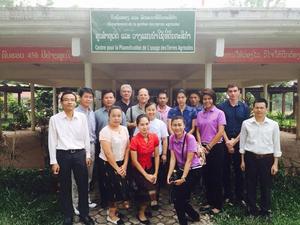
South-East Asia Laboratory NETwork's Quality Control Workshop: Results of the first SEALNET control; presentation, discussion, recommendations.
Date: May 4th-8th, 2015
Avenue:DALAM campus, Vientiane, Lao PDR
This workshop presents the first results of primitive proficiency test on the soil pH analysis, organic matter analysis, available P and K analysis and total nitrogen analysis. This proficiency test is an inter-laboratory test that allows determining the performance of individual laboratories for specific test or measurement. It is based on analysis of similar homogeneous soil samples by many laboratories. The aim of a ring test is to provide the laboratories a means of obtaining information regarding to laboratory bias and improve their soil analysis performance, (i.e. the precision and accuracy of their analysis).
During this workshop, there are;
- Presentation of the methodology
- Presentation of the statistical analysis done on the results
- Visit of DALAM, Napol and National university of Laos, Lao PDR laboratories and identification of the improvement of the traceability and quanlity could be done in all the laboratories.
- Visit of a eucalyptus plantation, soil sampling strategies and requirements.
-- -- -- -- -- -- --- -- -- -- -- -- -- -- -- -- -- -- -- -- -- -- --- -- -- -- -- -- -- -- -- ---- -- -- -- -- -- ---- -- -- -- -- -- --- --
Fact Sheet LMI-LUSES
We are pleased to announce the LMI-LUSES Fact Sheet report in two pages (recto-verso) describes the necessary activities that achieved by LMI-LUSES since its beginning in 2012.
We try our best to keep it short and easily readable. We will deeply appreciate to get your feedback on this report.
Download Fact sheet
-- -- -- -- -- -- --- -- -- -- -- -- -- -- -- -- -- -- -- -- -- -- --- -- -- -- -- -- -- -- -- ---- -- -- -- -- -- ---- -- -- -- -- -- --- --
Training on "Quality management for microbiological and molecular biology laboratories"
Division of Soil Biotechnology of LDD and IRD organize a training session entitled “Quality management in Microbiological and Molecular Biology Laboratory” The main objective is to learn the significant aspects of the quality and provide essential knowledge using tools which are available in the propose of improving the quality in Microbial and Molecular Biology Laboratory.
This training will help LDD and IRD to better understand what a quality management system is, how to implement it, and how to work under a quality system. The training will be held on April 24th 2015 from 9.00 am. to 4.30 pm. in the meeting room of Office of Science for Land Development. Please find in the attached document the schedule of this training.
-- -- -- -- -- -- --- -- -- -- -- -- -- -- -- -- -- -- -- -- -- -- --- -- -- -- -- -- -- -- -- ---- -- -- -- -- -- ---- -- -- -- -- -- --- --
“Carbon sequestration in agricultural soils to mitigate climate change” keynote lecture.
The keynote lecture entitle “Carbon sequestration in agricultural soils to mitigate climate change”. The conference takes place April 10th 2015 at 9.30 am at the 2nd floor, Office of Science for Land Development, Land Development Department.
The outline of this conference is to share the presentation related that Agriculture is both a major contributor to greenhouse gas (GHG) emissions and a potential sink for drawing carbon out of the atmosphere. After examining the contribution of agriculture to GHG emissions, the presentation describes how agriculture might contribute to climate change mitigation. Then there will be discussion examples of biologically-mediated effects at the process level. And finished by briefly highlight how impacts at the ecosystem level are hard to predict.
-- -- -- -- -- -- --- -- -- -- -- -- -- -- -- -- -- -- -- -- -- -- --- -- -- -- -- -- -- -- -- ---- -- -- -- -- -- ---- -- -- -- -- -- --- --
International Soil Conference 2015
Land Development Department (LDD), a long-standing government agency under the Ministry of Agriculture and Cooperatives of Thailand who successfully runs a well known “Volunteer Soil-Doctor Program” and promotes sustainable soil management for food security and well being of farmers, would cordially invite scientists from developing and developed countries, academia, practitioners, policy makers, and interested persons to participate in the This conference is a part of activities to celebrate the International Year of Soils (IYS) as declared by the United Nations, aiming to welcome contribution of oral presentations and posters from delegates to exchange views and experience in relation to sustainable uses of soils to secure food production of our societies.
-- -- -- -- -- -- --- -- -- -- -- -- -- -- -- -- -- -- -- -- -- -- --- -- -- -- -- -- -- -- -- ---- -- -- -- -- -- ---- -- -- -- -- -- --- --
Poster hygiene and safety
As part of the quality approach to improve the safety prevention, two posters have been displayed in the LMI-LDD platform (Thai version en English version).The Laboratory hygiene and safety posters provide information and technical support to foster safe and healthy at LMI-LDD plateform laboratory.
-- -- -- -- -- -- --- -- -- -- -- -- -- -- -- -- -- -- -- -- -- -- --- -- -- -- -- -- -- -- -- ---- -- -- -- -- -- ---- -- -- -- -- -- --- --
LMI LUSES Facebook page !
-- -- -- -- -- -- --- -- -- -- -- -- -- -- -- -- -- -- -- -- -- -- --- -- -- -- -- -- -- -- -- ---- -- -- -- -- -- ---- -- -- -- -- -- --- --
The Interview of LMI LUSES partners during the LMI Annual meeting 2014 and Workshop on sustainable rubber.
- Why are rubber trees so important for South East Asia?
- What are your expectations from this annual meeting and Workshop on Rubber Tree?
- What did you learn during LMI LUSES Annual meeting?
- What are the outcomes from LMI Annual meeting?
-- -- -- -- -- -- --- -- -- -- -- -- -- -- -- -- -- -- -- -- -- -- --- -- -- -- -- -- -- -- -- ---- -- -- -- -- -- ---- -- -- -- -- -- --- --
Happy New Year 2015
Land Development Department
On January 2015, IRD-LDD team offer the gifts to the LDD directors and wishes everyone a happy New year and hopes they have perseverance, wisdom and good health in 2015.
-- -- -- -- -- -- --- -- -- -- -- -- -- -- -- -- -- -- -- -- -- -- --- -- -- -- -- -- -- -- -- ---- -- -- -- -- -- ---- -- -- -- -- -- --- --
Recent LUSES research
LMI LUSES Posters
Presentation of the ECOFILTER Team at the Global Symposium on Soil Pollution (GSOP18), FAO, Rome, 2-4 May 2018
Poster of the BIODIV TREE team presented at the SOM management conference held in Braunsweig on the 30 and 31 of May
Poster of the BIODIV TREE team presented at the SOM management conference held in Braunsweig on the 30 and 31 of May
Synopsis of LUSES 2017-2019
- LDD-IRD a long history of scientific cooperation
- Impact of Rubber Tree Plantation on Soil Biological Diversity
- LDD-LMI LUSES Platform of Microbiology
- LMI LUSES presentation
- PCR LDD-LMI LUSES Platform
- Laboratory guide: hygiene and safety in English
- Laboratory guide: hygiene and safety in Thai
PhDs students' scientific posters
The dynamics of litter degradation and Soil-bio functioning in Rubber plantation : Pusanisa Heepngoen
Long term impact of Rubber Plantation on Soil biodiversity and Activity: Phantip Panklang
Impact of Rubber Plantation age and Land use change on the soil microbial community : Monrawee
Integration of the impact of agricultural practices on soil quality in an environmental assessment : Alexis
Starch Synthesis and Mobilization in wood and bark of rubber tree, in relation with Latex production : Tuksin




